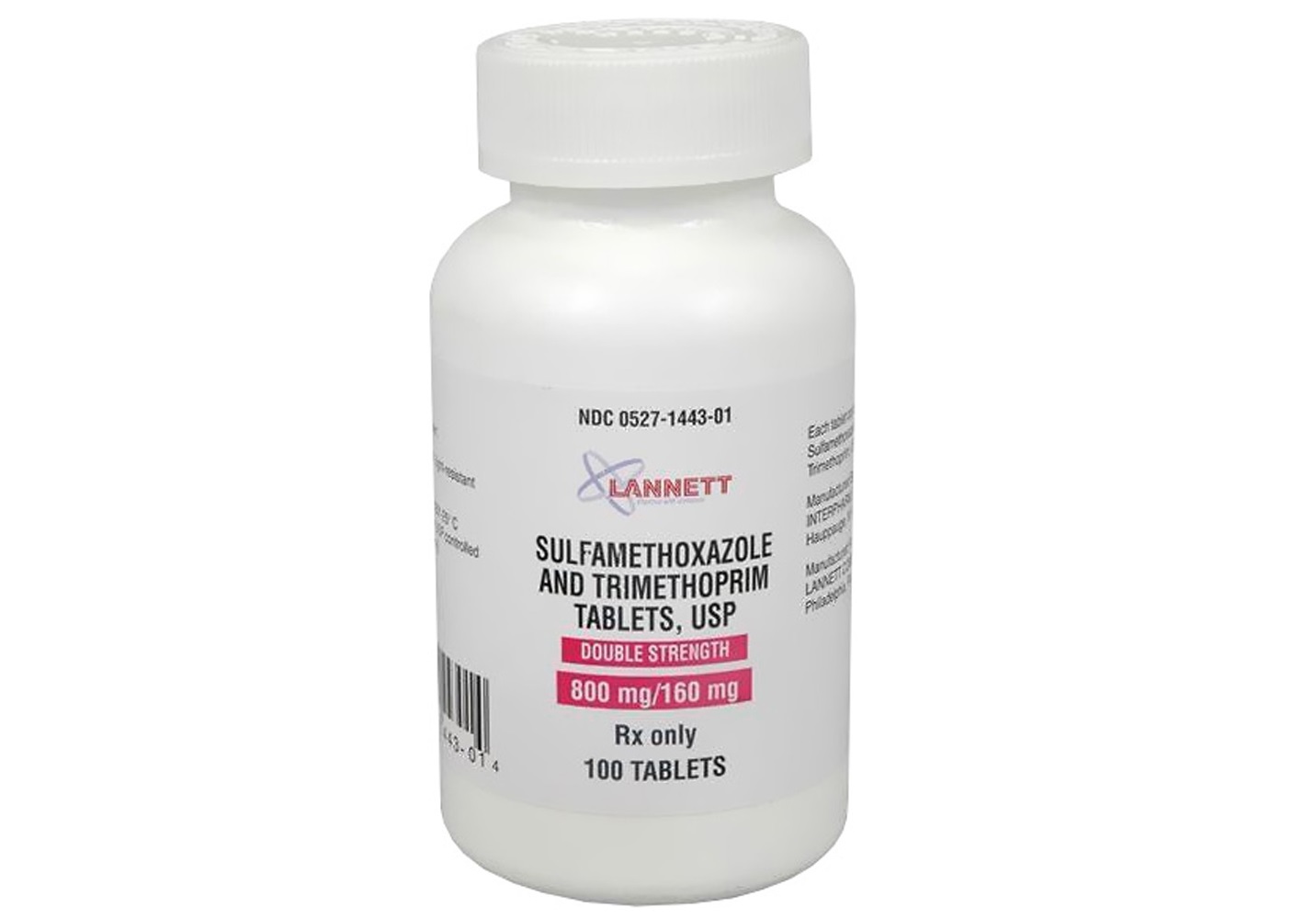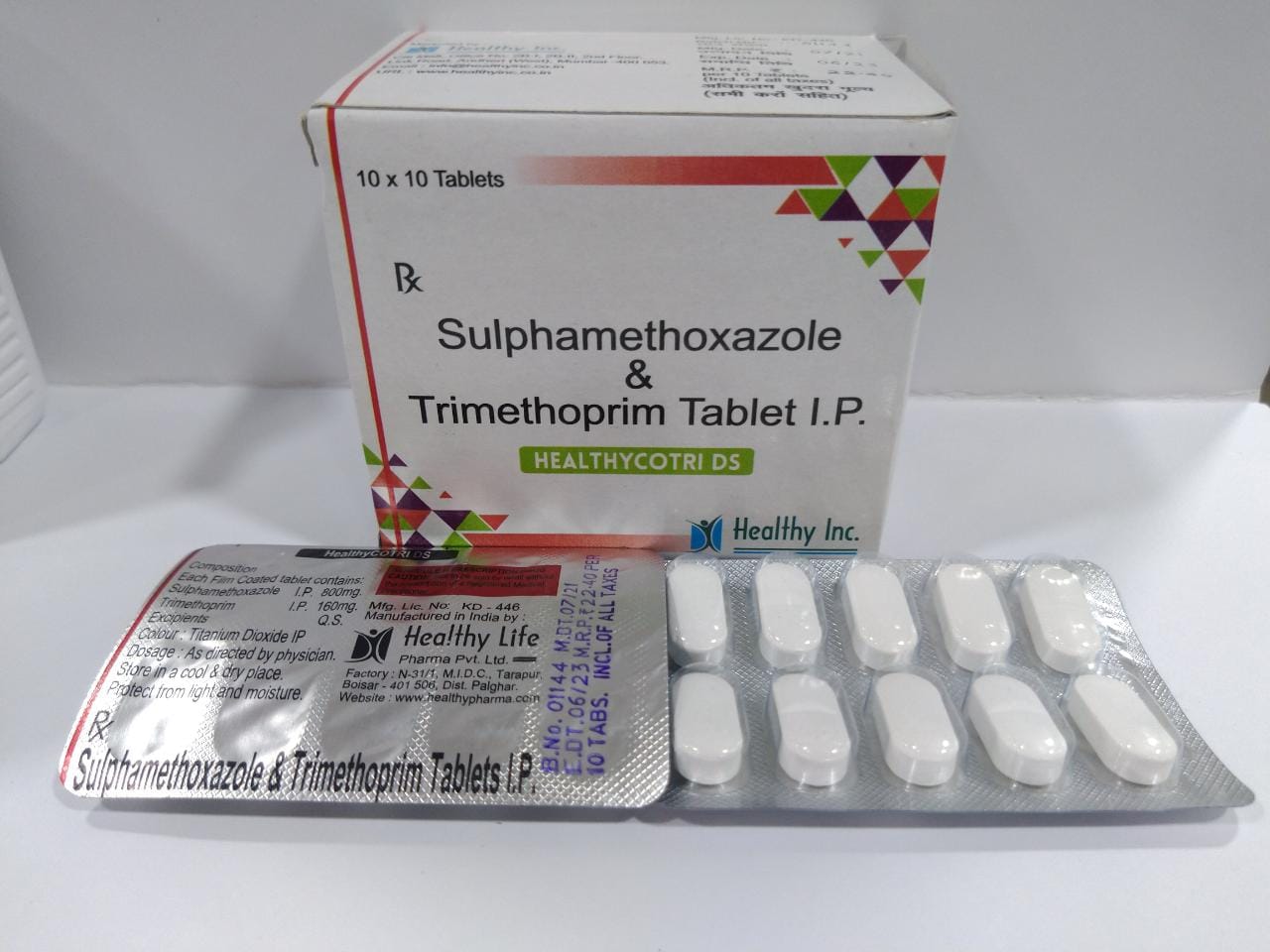Sulfamethoxazole and trimethoprim, commonly referred to as Bactrim, are two antibiotics that work together to treat a variety of bacterial infections. When taking this medication, it’s crucial to be aware of potential food and drink interactions. These interactions can potentially diminish the efficacy of the medication or even contribute to unwanted side effects.
In this article, we will discuss some of the specific foods and beverages to avoid while taking sulfamethoxazole and trimethoprim. By being aware of these potential interactions, consumers can ensure they maintain the optimal effectiveness of the medication while minimizing unwanted side effects.
It is also important to note that individual reactions may vary, and it’s essential to follow the advice of your healthcare provider while taking sulfamethoxazole and trimethoprim. If you experience any unusual symptoms or reactions, contact your healthcare professional immediately.
Reader's Roadmap
Understanding Sulfamethoxazole / Trimethoprim
Sulfamethoxazole/trimethoprim is a fixed combination medicine containing two antibiotics, sulfamethoxazole and trimethoprim. These two components work together effectively to combat a wide variety of bacterial infections.
Their unique combination is especially effective in treating infections such as urinary tract infections, middle ear infections (otitis media), bronchitis, traveler’s diarrhea, and shigellosis (bacillary dysentery). It functions by stopping the growth of bacteria responsible for these infections.
For instance, the recommended treatment for bronchitis with this medication is taking 1 tablet (DS tablet) of 800 milligrams (mg) of sulfamethoxazole and 160 mg of trimethoprim, 2 tablets of 400 mg of sulfamethoxazole and 80 mg of trimethoprim, or 4 teaspoonfuls or 20 milliliters (mL) of oral liquid every 12 hours for 14 days.
It is essential to follow the prescription and dosage instructions provided by the healthcare professional for the specific infection being treated. Overusing or misusing any antibiotic can lead to decreased effectiveness and can contribute to the development of antibiotic-resistant bacteria.
Like all medications, sulfamethoxazole/trimethoprim can cause some side effects, and in some cases, these can be severe. One possible side effect is diarrhea, which might be severe and occur even 2 months or more after stopping the medication. It is advised not to self-treat diarrheal symptoms without consulting a healthcare professional first.
It is of utmost importance to understand which foods to avoid when taking sulfamethoxazole/trimethoprim as some food items might interact negatively with this combination drug. In order to maximize treatment effectiveness and reduce the chances of side effects, being informed and cautious about any potential dietary restrictions and interactions is crucial while taking this medication.

Potential Side Effects
Sulfamethoxazole/Trimethoprim, commonly known as Bactrim, is a combination drug used to treat various bacterial infections. While this medication can be effective, it may also cause some side effects that you should be aware of. In this section, we will discuss some of the potential side effects associated with sulfamethoxazole/trimethoprim.
Gastrointestinal Issues: Some of the most common side effects experienced while taking this medication are related to the gastrointestinal system. These may include nausea, vomiting, and diarrhea. It is essential to keep yourself hydrated if you experience these symptoms, as they could lead to dehydration.
Skin Reactions: A skin rash is another potential side effect of this medication. Some individuals may develop red, irritated skin, or even a red skin lesion with a purple center. It is crucial to contact your healthcare provider if you notice any unusual skin changes while taking the medication.
Headaches: Some patients may experience headaches as a side effect of sulfamethoxazole/trimethoprim. If you find yourself experiencing persistent or severe headaches, consult with your healthcare provider for advice on managing this symptom.
Respiratory Issues: In rare cases, this drug may cause shortness of breath. If you experience difficulty breathing while taking this medication, it is essential to seek immediate medical attention.
Electrolyte Imbalances: Sulfamethoxazole/trimethoprim has been known to cause imbalances in the body’s electrolytes, such as hyperkalemia (high potassium), hyponatremia (low sodium). These imbalances can lead to confusion, weakness, and irregular heartbeat. It is important to discuss any concerns with your healthcare provider if you believe you are experiencing electrolyte imbalances while taking this medication.
Hypoglycemia: Another possible side effect for some individuals taking sulfamethoxazole/trimethoprim is hypoglycemia (low blood sugar). Symptoms of hypoglycemia may include anxiety, sweating, and dizziness. Monitoring your blood sugar levels and adjusting your diet as needed can help prevent and manage this side effect.
It is essential to remember that all individuals react differently to medications. You should discuss any concerns or side effects with your healthcare provider, as they can recommend adjustments or alternatives if necessary.
Interactions with Food and Drink
When taking sulfamethoxazole/trimethoprim, it is important to be aware of potential interactions with certain foods and drinks. Consuming these items may affect the effectiveness of the medication or cause unwanted side effects.
Alcohol should be avoided while taking this medication, as it can lead to unpleasant side effects like fast heartbeats, warmth or redness under the skin, tingling feeling, nausea, or vomiting. It is essential to check food and medicine labels to ensure they do not contain ethanol, a common alcohol ingredient.
Sugar and processed foods may not directly interact with sulfamethoxazole/trimethoprim, but a diet high in these items can potentially weaken the immune system, making it harder for the medication to effectively treat bacterial infections. It is best to maintain a balanced diet rich in fruits, vegetables, and whole grains.
Dairy products like milk and other calcium-rich items do not directly interact with sulfamethoxazole/trimethoprim. However, calcium can interfere with the absorption of some other antibiotics. To be safe, it’s a good idea to consume dairy products at least two hours before or after taking the medication.
Some vegetables and fruits, such as bananas and grapefruit, may interact with certain medications, but there is no known interaction with sulfamethoxazole/trimethoprim. Still, it is always a good practice to consult with your healthcare provider before making any significant dietary changes while on medication.
Caffeine can have an additive effect with some medications, increasing the risk of side effects such as increased heart rate, restlessness, or insomnia. While it is not proven that caffeine specifically interacts with sulfamethoxazole/trimethoprim, it may be prudent to monitor or limit your caffeine intake while taking this medication.
There is no known interaction between chocolate, garlic, or soy products and sulfamethoxazole/trimethoprim. However, always consult your doctor before making any changes to your diet while on medication, as individual needs may vary. It is essential to monitor any changes in your condition and report them to your healthcare provider, in case any adjustments to your medication or diet need to be made.
In conclusion, while taking sulfamethoxazole/trimethoprim, it is important to be aware of potential food and drink interactions and maintain a healthy, balanced diet. Consult your healthcare provider with any concerns or questions about managing your diet while on this medication.
Understanding High Potassium and Sulfamethoxazole / Trimethoprim
Sulfamethoxazole / trimethoprim is a combination of two antibiotics often used to treat various infections, including urinary tract infections, middle ear infections, bronchitis, traveler’s diarrhea, and shigellosis. While taking this medication, it is essential to be aware of the dietary restrictions related to potassium levels, as certain foods may interact with the drug and impact your overall health.
High potassium levels, also known as hyperkalemia, can cause various health issues, including heart palpitations and muscle weakness. It is crucial to maintain a balanced diet and consider potassium intake while on sulfamethoxazole / trimethoprim because the medication could potentially affect your body’s ability to regulate potassium levels.
Some foods are naturally high in potassium and should be consumed in moderation or avoided altogether when taking sulfamethoxazole / trimethoprim. These include bananas and potatoes, which are well-known sources of potassium. Other examples of high-potassium foods are avocados, spinach, and sweet potatoes. It is crucial to monitor your dietary choices, consult with your healthcare provider, and adjust your potassium intake according to their recommendations.
In conclusion, it is essential to be mindful of your potassium intake when taking sulfamethoxazole / trimethoprim to avoid complications due to high potassium levels. Consult with your healthcare provider to ensure you consume a balanced diet that minimizes any potential adverse effects from the medication and keeps your potassium levels in check.
Note: Always consult a healthcare professional before making any changes to your diet or medication regimen. This information is for educational purposes only and should not replace medical advice.

Considerations for Dietary Supplements
When taking sulfamethoxazole/trimethoprim, it is essential to be mindful of potential interactions with dietary supplements. Some supplements may alter the effectiveness of the medication or exacerbate side effects.
Probiotics, found in foods like yogurt, kefir, and kimchi, have been known to maintain gut health and boost the immune system. These beneficial bacteria can help counteract the negative effects antibiotics may have on the gut flora. However, it is crucial to consult a healthcare provider before combining probiotics with sulfamethoxazole/trimethoprim. Timing the intake of probiotics and antibiotics appropriately can help in reducing antibiotic-associated side effects.
Vitamin K plays a vital role in blood clotting and bone health. Although it doesn’t have a direct interaction with sulfamethoxazole/trimethoprim, patients taking blood thinners like warfarin should be cautious when consuming vitamin K-rich foods or supplements. Warfarin’s effectiveness can be decreased by a higher intake of vitamin K, and since sulfamethoxazole/trimethoprim may also interact with warfarin, it is crucial to monitor vitamin K consumption and keep it consistent under medical supervision.
As always, it is recommended to speak with a healthcare professional before adding or modifying any supplements in one’s diet, especially when on medication. Understanding potential interactions can help ensure the effectiveness and safety of both the dietary supplements and the prescribed drugs.
Risk Factors and Special Considerations
When taking sulfamethoxazole/trimethoprim, there are several risk factors and special considerations to keep in mind. Pregnant women should exercise caution, as this medication may have potentially harmful effects on the unborn baby. It is essential to consult a doctor before using this medication during pregnancy.
Birth control may be less effective when taking sulfamethoxazole/trimethoprim. It is recommended to use an additional form of contraception, such as a condom, to prevent unintended pregnancies while using this medication.
Administering this medication to children may require special attention, as they may exhibit a higher risk of side effects. Always consult a healthcare professional before giving this medicine to children.
Individuals with kidney disease should be cautious when taking sulfamethoxazole/trimethoprim, as their body may have difficulty processing the medication. It is essential to discuss any kidney-related concerns with your doctor before starting the treatment.
Similarly, those with liver disease should also consult their doctor to ensure that the medication is safe for them and won’t exacerbate their condition.
When starting a new medication, it’s crucial to discuss any existing medical conditions with your pharmacist or doctor. They can provide guidance on any potential interactions or complications.
In conclusion, always consult a healthcare professional before taking sulfamethoxazole/trimethoprim, especially if you fall into any of the mentioned categories or have other underlying medical conditions. This guidance will help ensure that the treatment is both safe and effective.
Notable Drug Interactions
Sulfamethoxazole/trimethoprim, also known as Bactrim, is a commonly prescribed antibiotic that can interact with various other medications. When taking this medication, it is crucial to be aware of these interactions to prevent potential side effects or reduced effectiveness of either the antibiotic or the interacting drug.
One significant interaction involves cyclosporine, an immunosuppressant drug often prescribed to patients who have undergone organ transplantation. The combination of sulfamethoxazole/trimethoprim and cyclosporine may lead to an increased risk of kidney damage. Therefore, close monitoring of kidney function is necessary when these drugs are taken together.
Another interaction to be mindful of is with digoxin, a medication used in treating heart conditions such as atrial fibrillation and heart failure. When sulfamethoxazole/trimethoprim is taken with digoxin, it can increase the levels of digoxin in the blood, resulting in the risk of digoxin toxicity. It is recommended that patients be monitored for symptoms of digoxin toxicity, including nausea, vomiting, and visual disturbances.
Indomethacin is a nonsteroidal anti-inflammatory drug (NSAID) that may also pose a risk in combination with sulfamethoxazole/trimethoprim. This interaction can lead to an increased likelihood of developing kidney damage or bladder issues, and may necessitate adjusting the dosages.
When it comes to antimalarial and antiparasitic medications like pyrimethamine, the concurrent use of sulfamethoxazole/trimethoprim can lead to an increased risk of blood toxicity due to the additive effects of the drugs. Patients may require consistent monitoring to ensure their blood counts do not drop to critically low levels.
Lastly, methotrexate is a medication used in the treatment of various conditions, including cancer, rheumatoid arthritis, and severe psoriasis. The combination of methotrexate and sulfamethoxazole/trimethoprim may result in heightened levels of methotrexate in the blood, increasing the potential for adverse effects, such as bone marrow suppression, liver damage, or gastrointestinal problems. Patients taking both medications should be closely monitored and may need dose adjustments to minimize these risks.
In summary, when taking sulfamethoxazole/trimethoprim, it is vital to consider the potential interactions with other medications and to discuss any concerns with a healthcare provider. They can help to adjust dosages, monitor for side effects, and provide personalized recommendations to ensure that the antibiotic treatment remains safe and effective.
Specific Diseases and Sulfamethoxazole / Trimethoprim
Sulfamethoxazole / Trimethoprim is a combination of two antibiotics used to treat a wide range of bacterial infections. Some of the most common infections it is prescribed for include pneumonia, bronchitis, traveler’s diarrhea, urinary tract infections (UTIs), and Pneumocystis jiroveci pneumonia (PCP), which is caused by the Pneumocystis carinii organism and often affects people with weakened immune systems, such as those with AIDS. It is important to note that this medication is not effective against viral infections like the flu or colds.
When treating pneumonia and bronchitis, Sulfamethoxazole / Trimethoprim works by inhibiting the growth and multiplication of the bacteria responsible for the infection. The combination of these two antibiotics is particularly effective, as it targets different stages of the bacterial growth process, making it difficult for the bacteria to develop resistance.
In the case of traveler’s diarrhea, caused by E.coli and other bacteria, Sulfamethoxazole / Trimethoprim is prescribed to alleviate the symptoms and shorten the duration of the illness. This medication is particularly helpful for travelers visiting areas where the risk of bacterial diarrhea is high.
For individuals with AIDS, Sulfamethoxazole / Trimethoprim is used to prevent and treat Pneumocystis jiroveci pneumonia (PCP), a life-threatening infection that affects the lungs. It is important for those living with AIDS to take this medication as directed to reduce the risk of PCP and other opportunistic infections that may occur due to their weakened immune system.
Sulfamethoxazole / Trimethoprim is also prescribed for treating urinary tract infections (UTIs), which are caused by bacteria like Escherichia coli (E.coli) and Staphylococcus saprophyticus. The antibiotics work together to eliminate the infection and prevent further complications.
It is essential for patients to take Sulfamethoxazole / Trimethoprim as prescribed and to complete the full course of treatment, even if their symptoms improve before finishing the medication. This helps to ensure that the infection is completely eradicated and reduces the risk of antibiotic resistance. Patients should also inform their healthcare provider of any other medications they are taking, as certain drugs may interact with Sulfamethoxazole / Trimethoprim, potentially causing adverse effects or reducing its effectiveness.
Understanding Serious Skin Reactions
Sulfamethoxazole/trimethoprim is a powerful antibiotic that can be very effective in treating a variety of bacterial infections. However, in some cases it can cause serious skin reactions. It is essential for patients to be aware of the possible side effects and to know which foods to avoid while taking this medication to reduce the risk of skin reactions.
One of the most severe skin reactions that can occur while taking sulfamethoxazole/trimethoprim is Stevens-Johnson syndrome. This rare condition causes a severe and potentially life-threatening skin rash, characterized by blistering, peeling, and loosening of the skin. Other symptoms of Stevens-Johnson syndrome may include chills, fever, and muscle pain. If you suspect you may be developing this syndrome, it is crucial to seek medical attention immediately.
Patients taking sulfamethoxazole/trimethoprim should also be on the lookout for other skin reactions, such as itching, rash, or a generalized skin rash. These may be less severe than Stevens-Johnson syndrome, but still warrant attention and may require modifications to treatment or discontinuation of the medication.
In order to minimize the risk of serious skin reactions while taking sulfamethoxazole/trimethoprim, patients should avoid certain foods. While there is no specific list of foods to avoid, it is generally recommended to stay away from foods that are known to cause allergic reactions or may interact with the medication. Some examples include alcohol, grapefruit, and foods high in tyramine (such as aged cheeses and processed meats).
By understanding the potential risks associated with sulfamethoxazole/trimethoprim and being vigilant about the possible development of serious skin reactions, patients can help ensure they are safely and effectively treating their bacterial infections. If you experience any signs of skin reactions while taking this medication, contact your doctor immediately for guidance on how to proceed.







Leave a Reply
View Comments